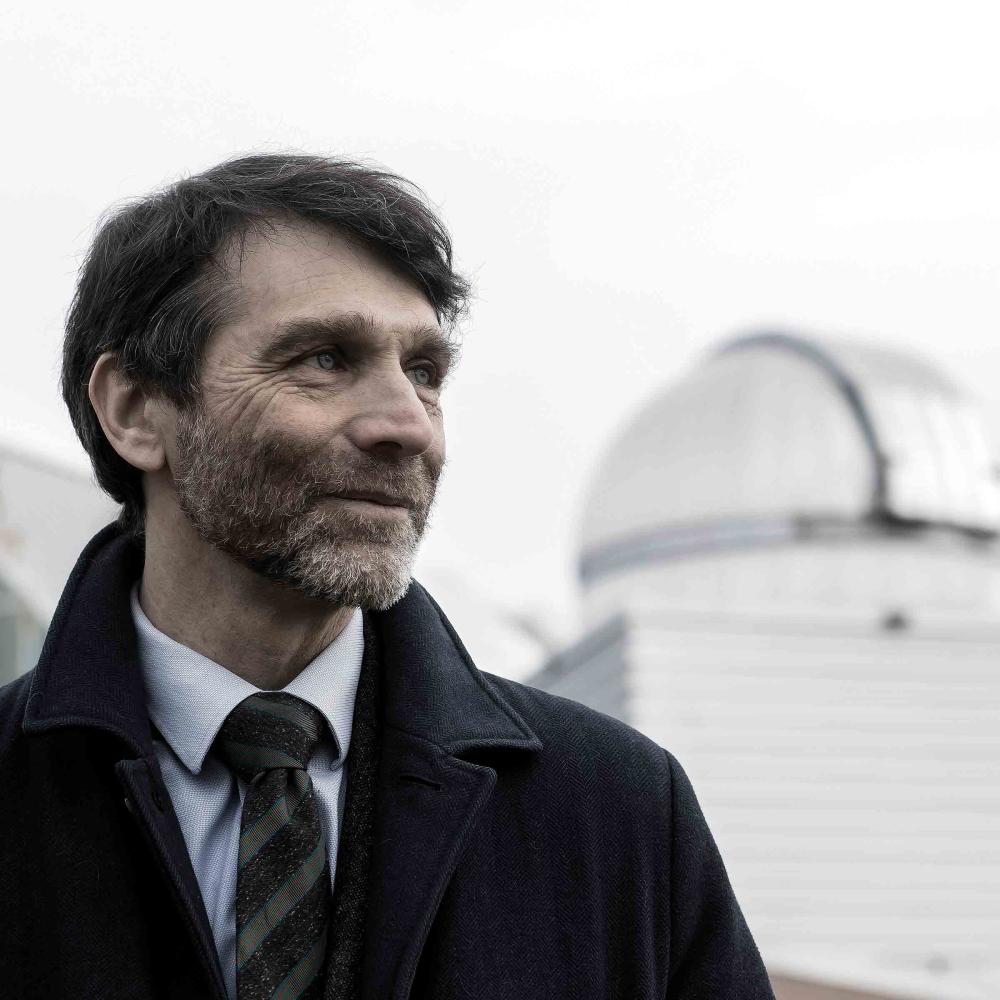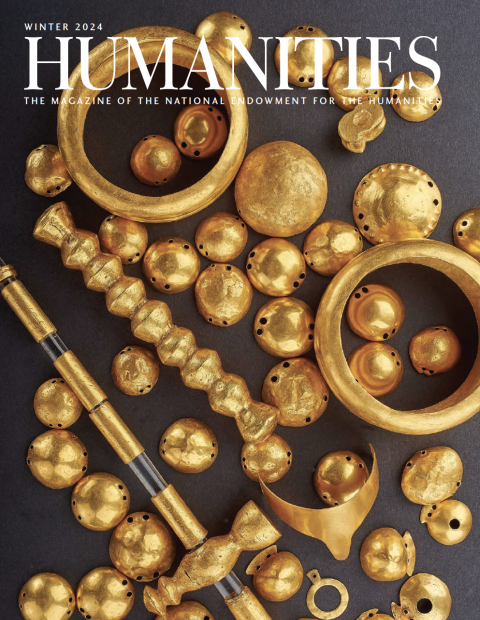After working for more than 20 years in a variety of roles at a major museum in the nation’s capital, Michael Haley Goldman was in search of a deeper sense of community.
“Audiences for a federal museum in Washington, D.C., tend not to be local,” Haley Goldman said. Patrons drop into places like the Smithsonian or the U.S. Holocaust Memorial Museum, where Goldman worked, when they are children, and again later when they bring their own children. It’s hard for museum staff to feel a connection to an audience that visits only sporadically.
Haley Goldman became executive director of New Hampshire Humanities in September 2021. In the past two years, he has encountered enough of the Granite State’s close-knit villages, hill towns, and former mill cities to find perhaps more community than he expected.
“Despite the fact that it’s a small state,” Haley Goldman said, “there’s still an incredible range of things that are happening.” New Hampshire Humanities serves a diverse public in “overlapping communities across the state.”
That includes, he said, everything from providing programs at small, rural libraries to reaching out to populations of new Americans in Manchester, the state’s largest and most polyglot city. And partnerships range from those small libraries to Dartmouth College’s Leslie Center for the Humanities.
New Hampshire Humanities hired Haley Goldman in part to expand its abilities to reach the public via technology. In addition to a bachelor’s degree in philosophy from Haverford College, Haley Goldman, who is fifty-four years old, holds a master’s degree in computing and education from Columbia University’s Teachers College. His varied roles at the U.S. Holocaust Memorial Museum included leading a team of digital innovators exploring how emerging technologies influence the teaching of history. Virtual reality, for example, makes it possible to immerse a viewer in a historical milieu. His job title was a heady one: Director of Future Projects.
Though technology is a key part of New Hampshire Humanities’s strategic plan, Haley Goldman is aware of its limitations. As important as Internet applications such as Zoom were during the coronavirus pandemic, not everyone was comfortable using them, he noted. In New Hampshire, broadband Internet service is far from universal. People who’d like to participate in his agency’s programs, moreover, might not have a laptop or desktop computer.
“Technology isn’t always part of the solution,” he said. The use of modern connectivity “can mask issues of access that we take for granted. We’re talking a lot about that.”
The former Director of Future Projects also has come to learn that what many Granite Staters want to know more about is the past, particularly their own local history and the history of the Abenaki, whose ancestral land comprises much of northern New England.
Local history can be a way into wider themes. Looking at what local newspapers had to say about what was going on during global events, such as the Holocaust, can help citizens and students understand what was on the public’s mind at the time.
If technology is no panacea, and if the public wants to know about the past, returning to previous successful programming can work well, too. This year, New Hampshire Humanities brought back a statewide Big Read, after an absence of around ten years. In partnership with 50 libraries around the state, participants read and discussed The Bear, by novelist Andrew Krivak, a part-time resident of Jaffrey, N.H. The book is set in a nearly posthuman future, where connection with nature, a quality dear to many in New Hampshire, is paramount. Another local author, Hanover novelist Jodi Picoult, headlined the annual celebration of the humanities on November 8. Other similarly nonvirtual experiences are forthcoming.
Haley Goldman is looking ahead to 2026, the 250th anniversary of the Declaration of Independence, which he sees as an opportunity to talk about the nation’s principles and sense of itself. “A lot of what we’re talking about doing,” he said, has to do with the question of “how do we have conversations around the state about who we are and who we’re going to become.”
Working in New Hampshire, Haley Goldman has gotten used to the phenomenon, common to residents of small states, that you’re likely to encounter people more than once every ten years. More importantly, in a small state, someone you meet is likely to have heard about you from someone who’s already met you.
“I didn’t really understand how much people’s individual lives here overlap with everyone else’s,” he said. “It makes every interaction important.”


